If p then q q therefore p is an example of what kind of common argument 259531
A formal consequence must be true in all cases, however this is an incomplete definition of formal consequence, since even the argument "P is Q's brother's son, therefore P is Q's nephew" is valid in all cases, but is not a formal argument A priori property of logical consequence
If p then q q therefore p is an example of what kind of common argument-The technique involves two steps to prove a statement, as stated below − Step 1 (Base step) − It proves that a statement is true for the initial value Step 2 (Inductive step) − It proves that if the statement is true for the n th iteration (or number n ), then it is also true for (n1)th iteration (Some Common Valid Argument Forms Modus Ponens (MP) 1 If P, then Q 2 P 3 Therefore, Q Multiple Modus Ponens (MMP) 1 P 2 If P, then Q 3 If Q, then R
If p then q q therefore p is an example of what kind of common argumentのギャラリー
各画像をクリックすると、ダウンロードまたは拡大表示できます
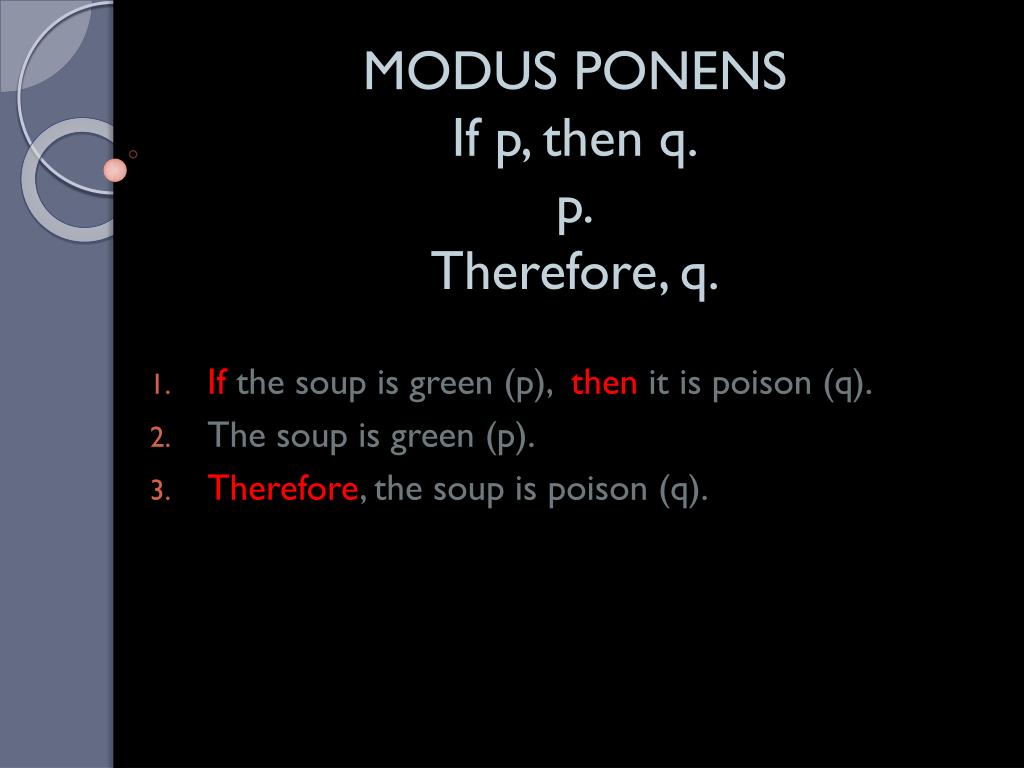 | ||
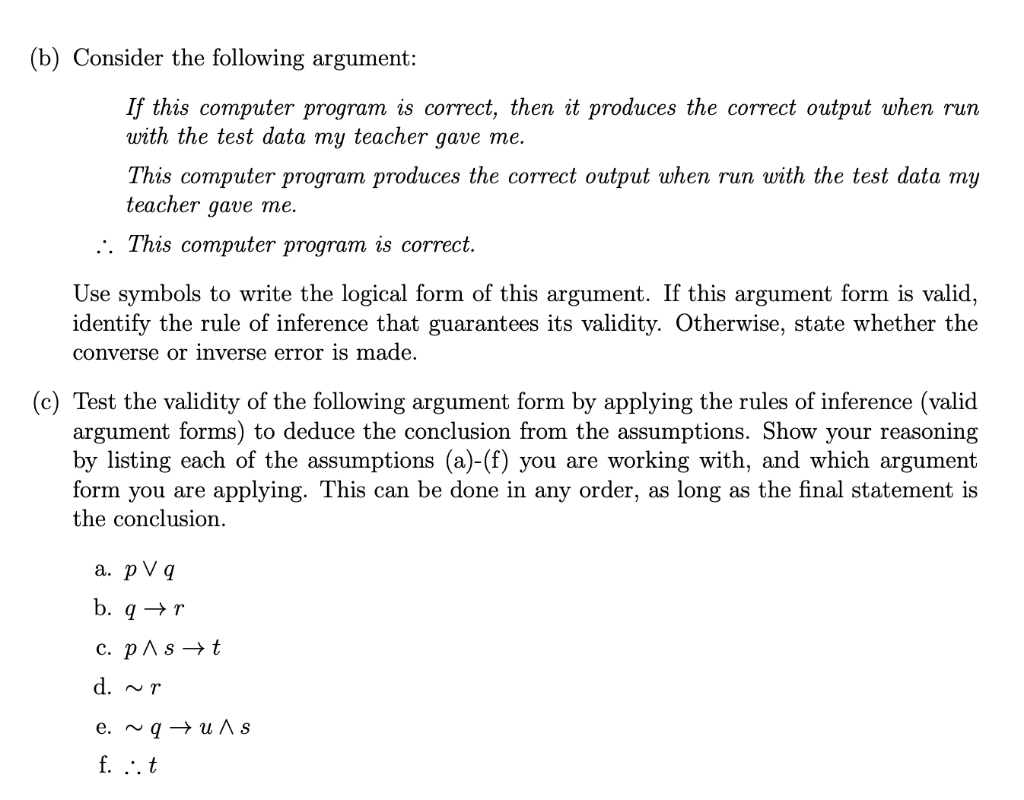 | ||
 |  |  |
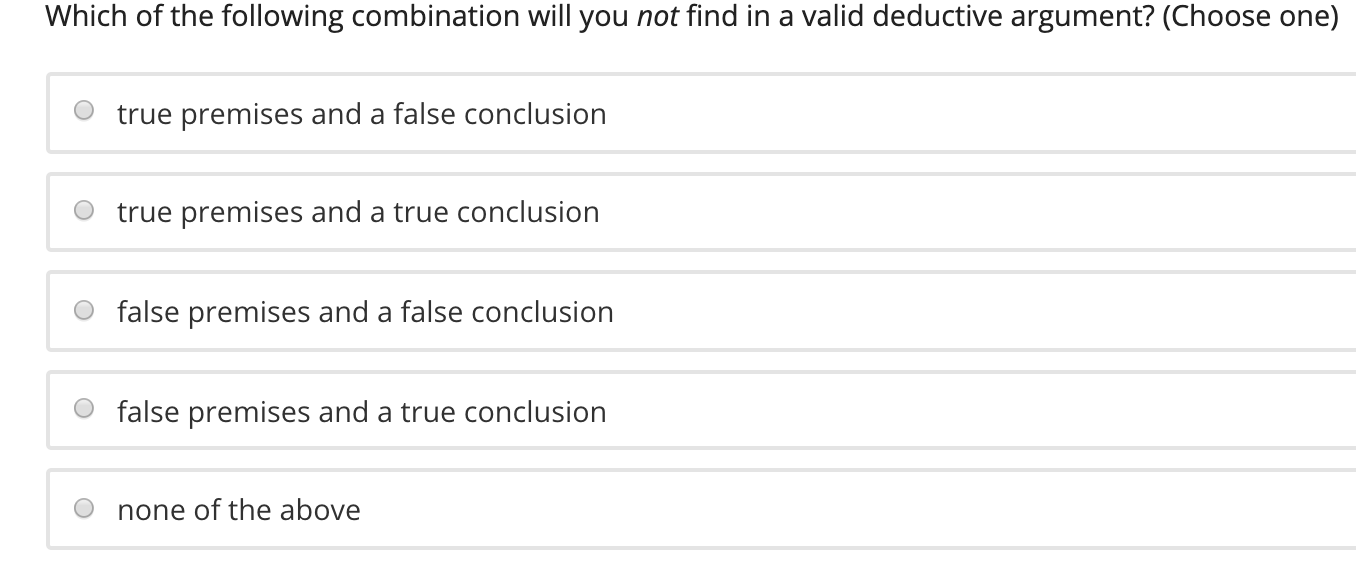 |  | |
「If p then q q therefore p is an example of what kind of common argument」の画像ギャラリー、詳細は各画像をクリックしてください。
 |  | |
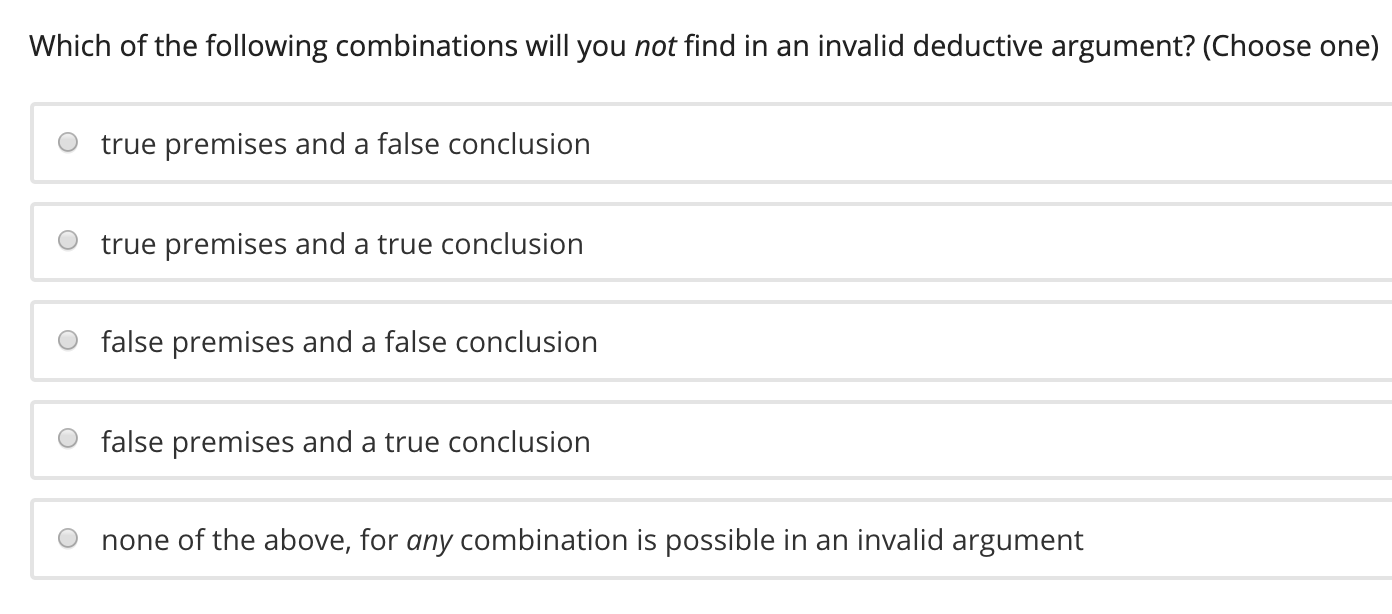 |  | |
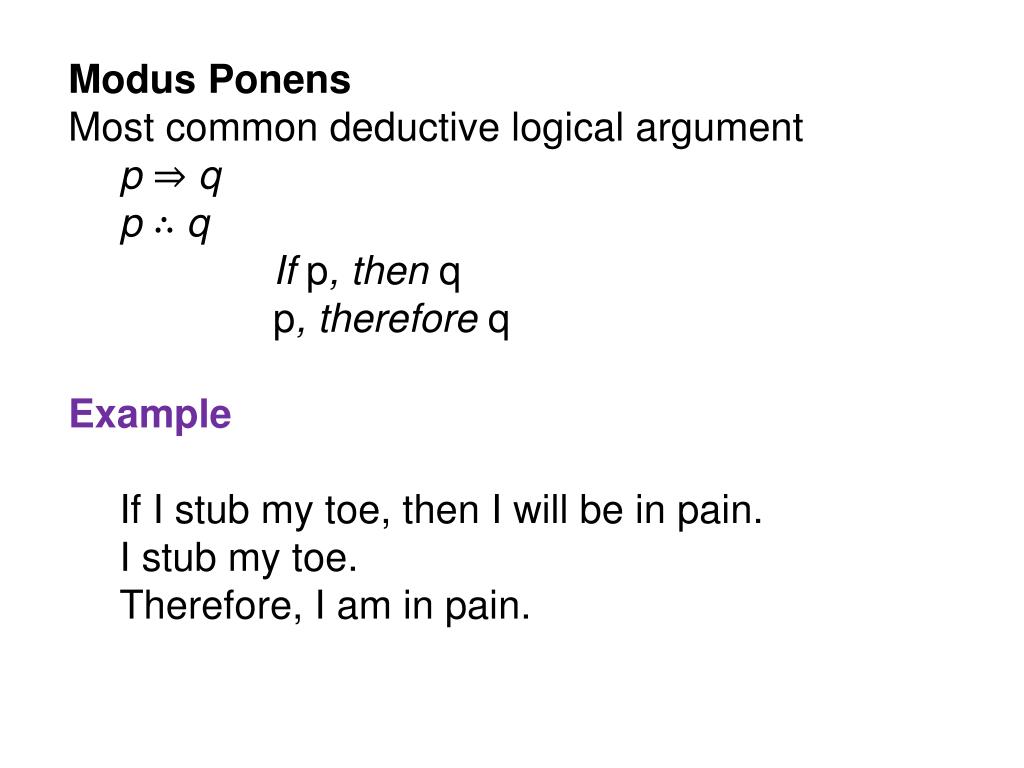 |  | 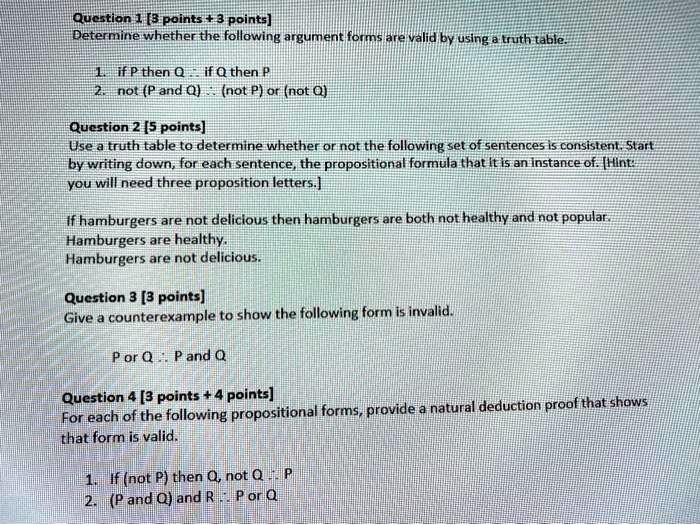 |
 | ||
「If p then q q therefore p is an example of what kind of common argument」の画像ギャラリー、詳細は各画像をクリックしてください。
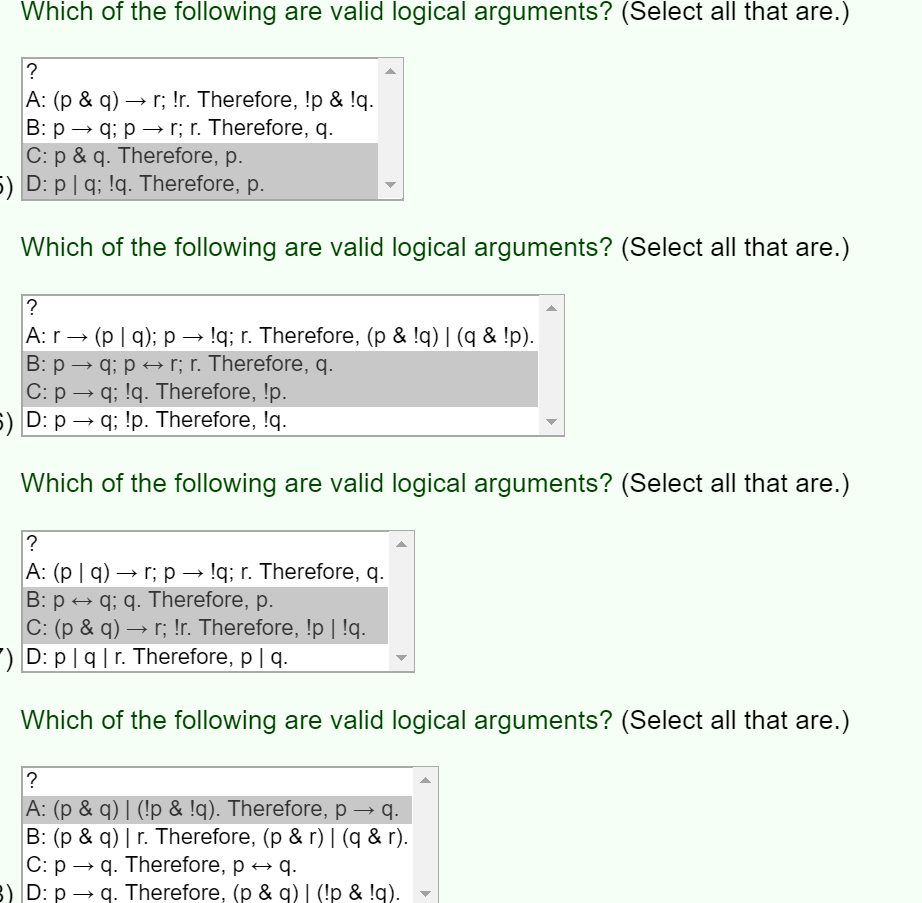 |  | 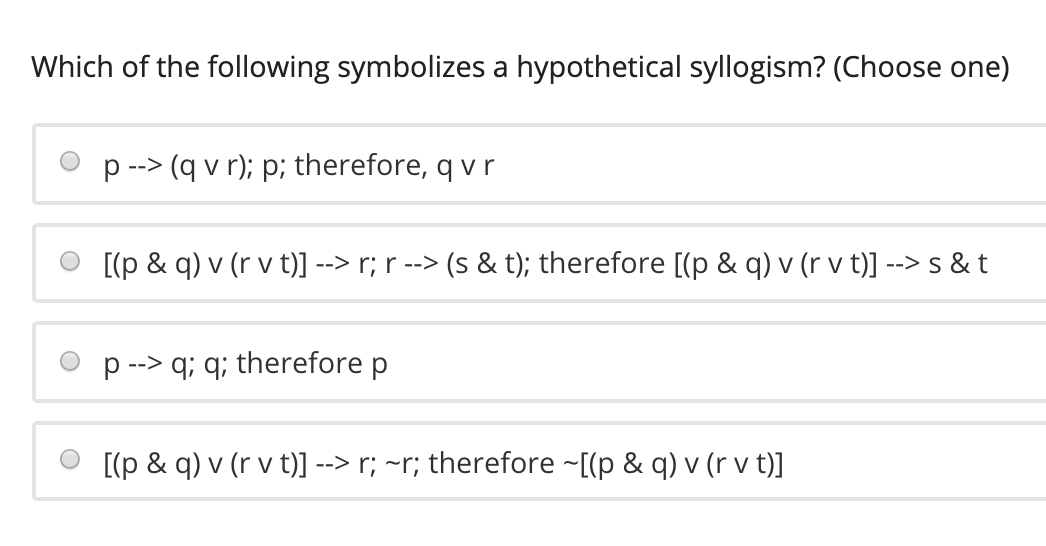 |
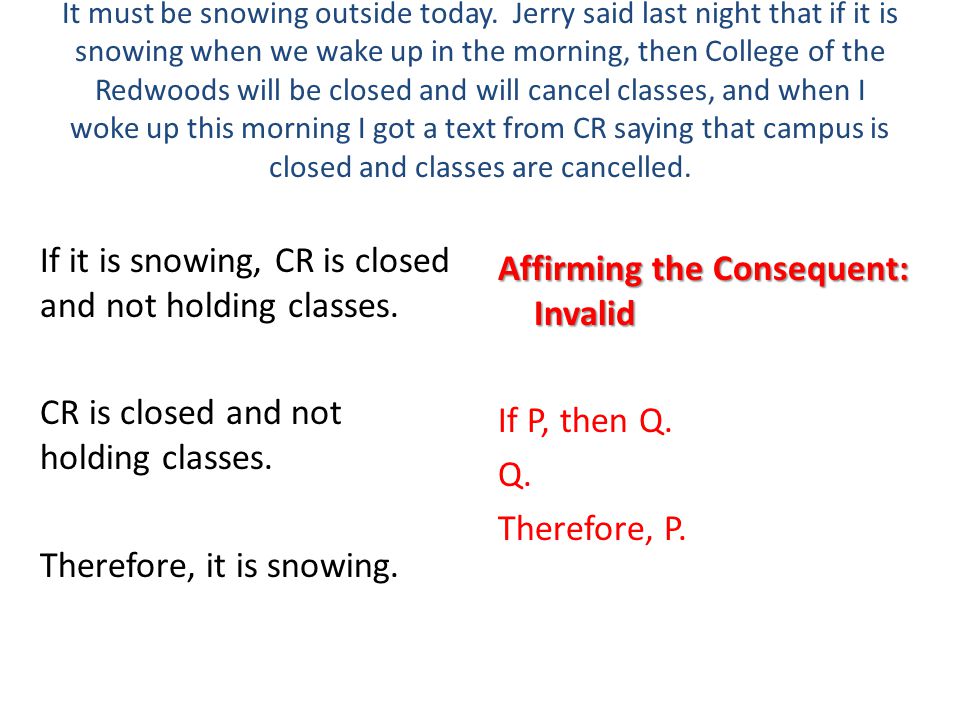 | 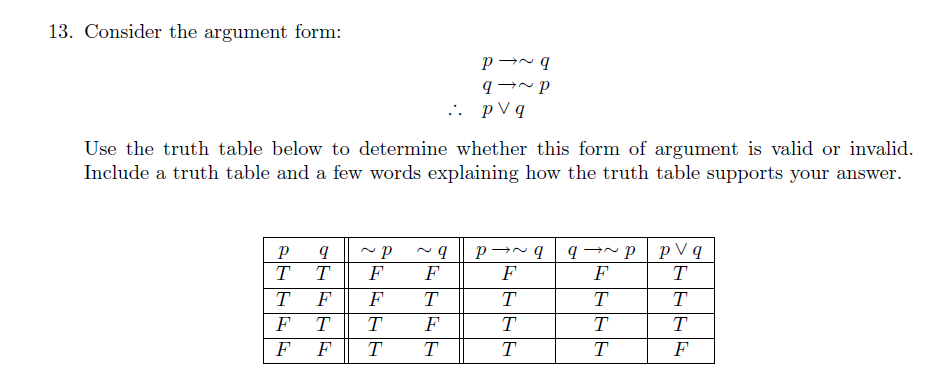 | 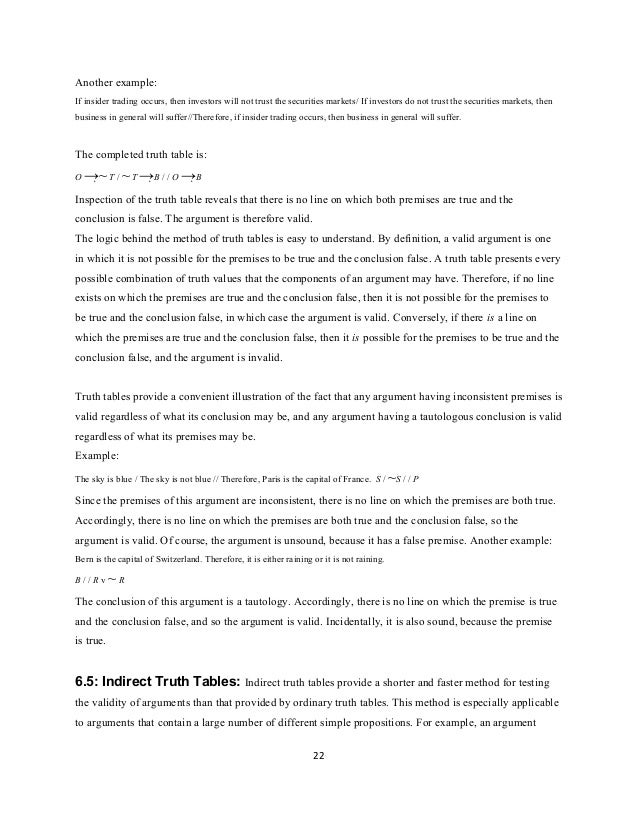 |
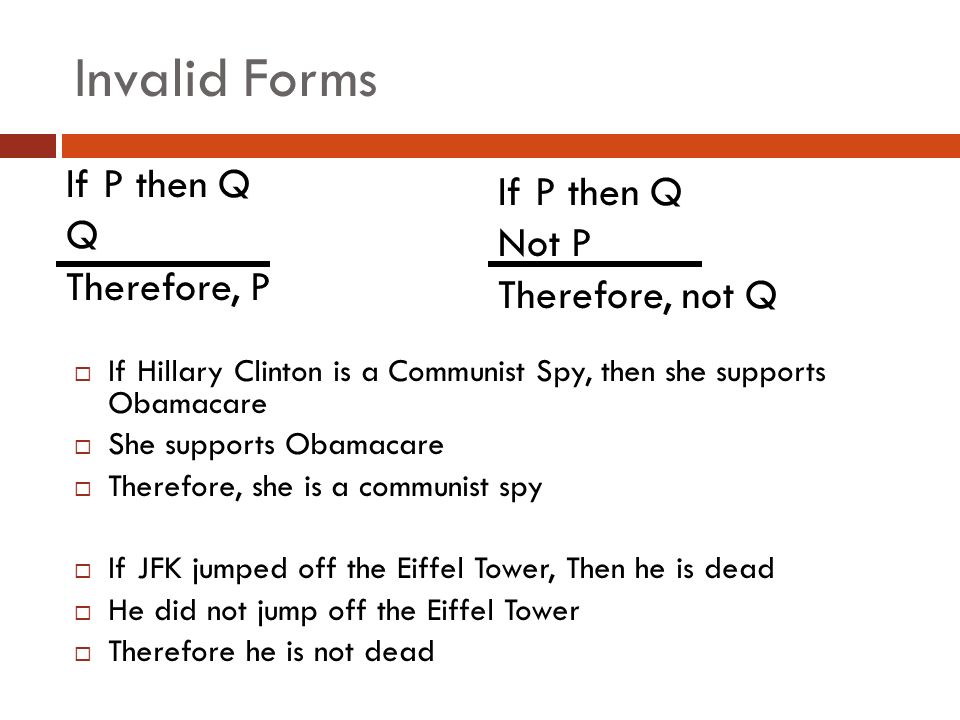 |  | |
 |  | |
「If p then q q therefore p is an example of what kind of common argument」の画像ギャラリー、詳細は各画像をクリックしてください。
 |  |  |
 | ||
 |  | |
 |  | 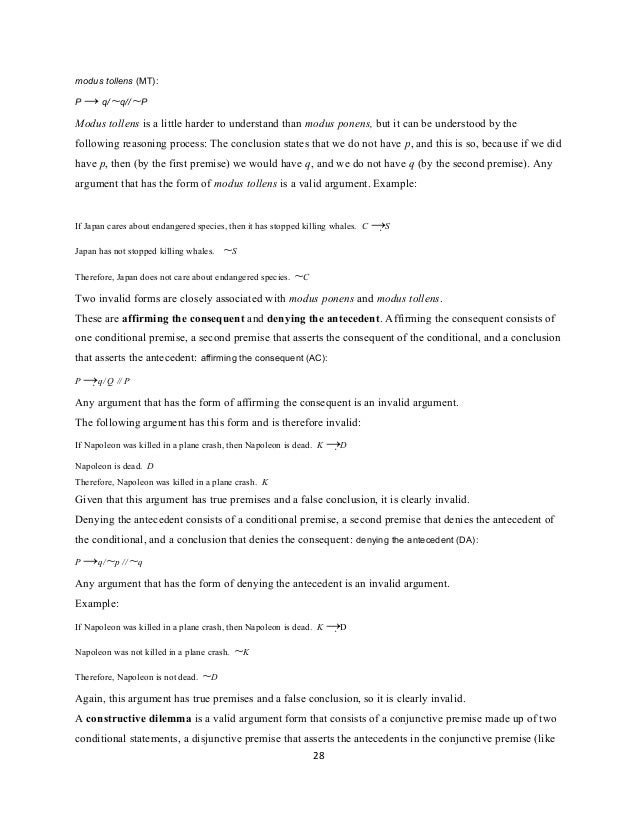 |
「If p then q q therefore p is an example of what kind of common argument」の画像ギャラリー、詳細は各画像をクリックしてください。
 | ||
 |  | |
 | 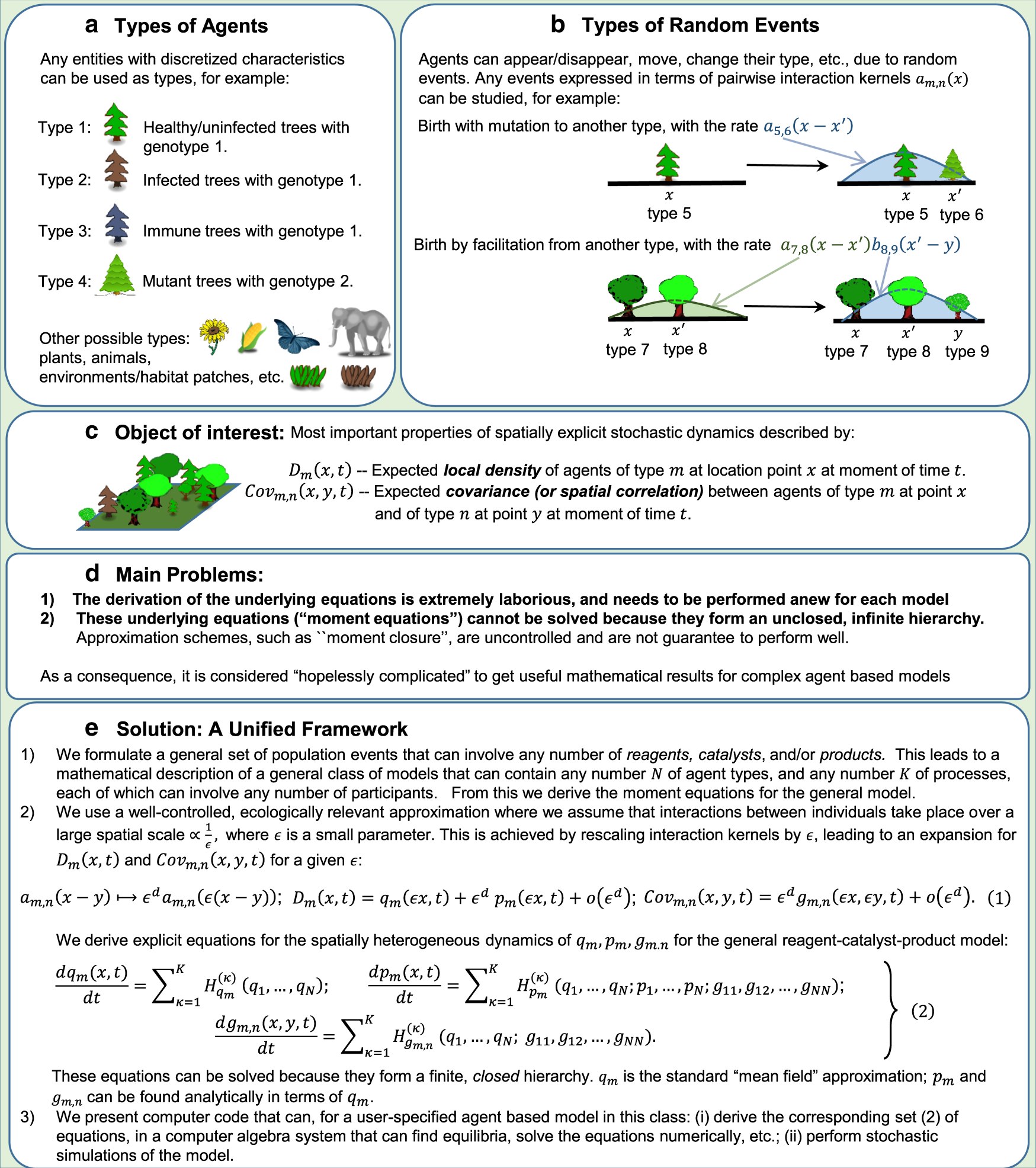 | |
 | 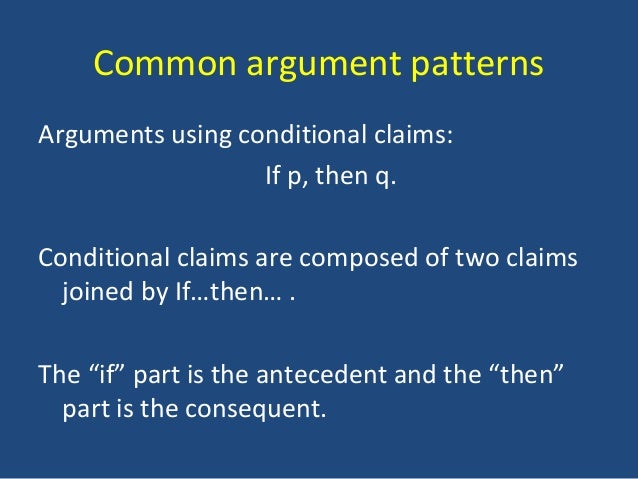 | 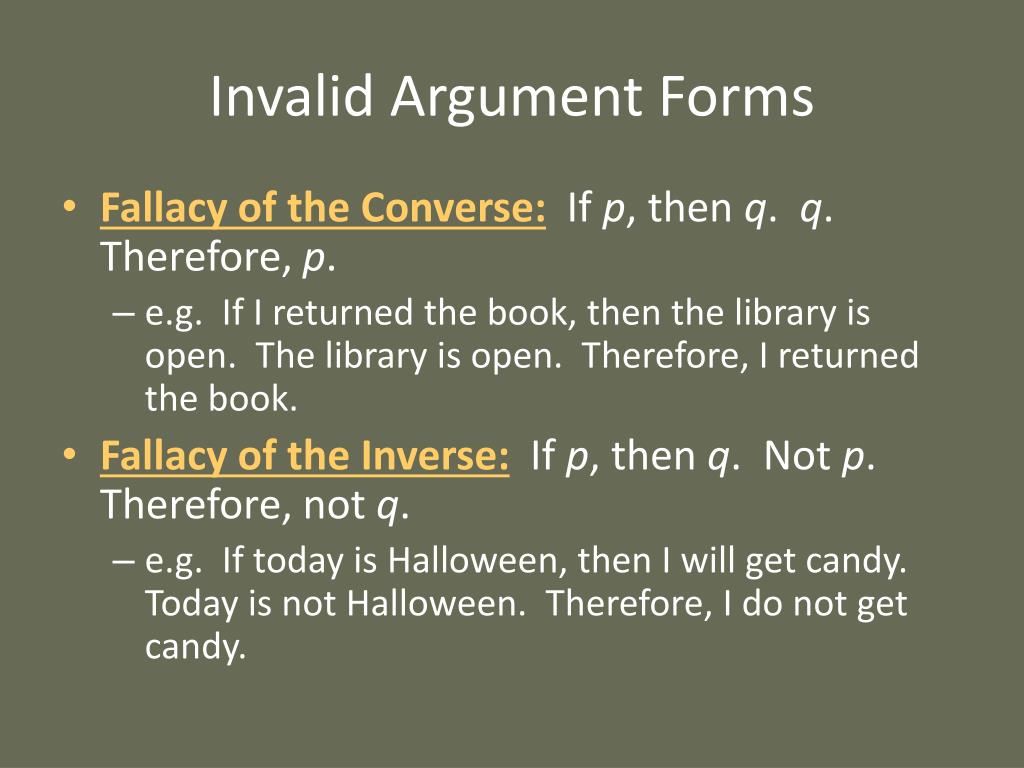 |
「If p then q q therefore p is an example of what kind of common argument」の画像ギャラリー、詳細は各画像をクリックしてください。
 | ||
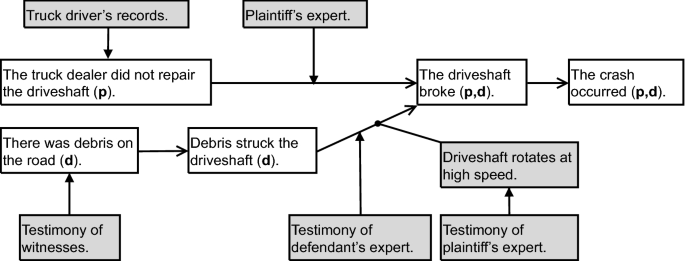 | 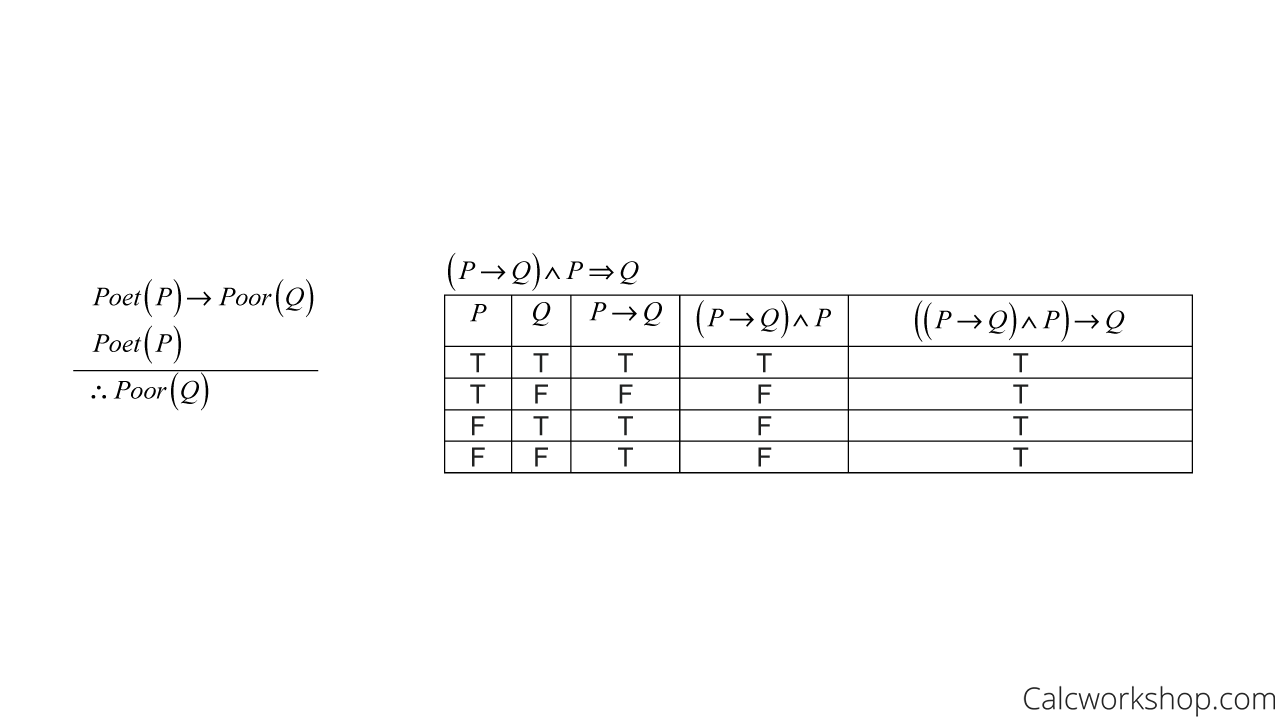 | |
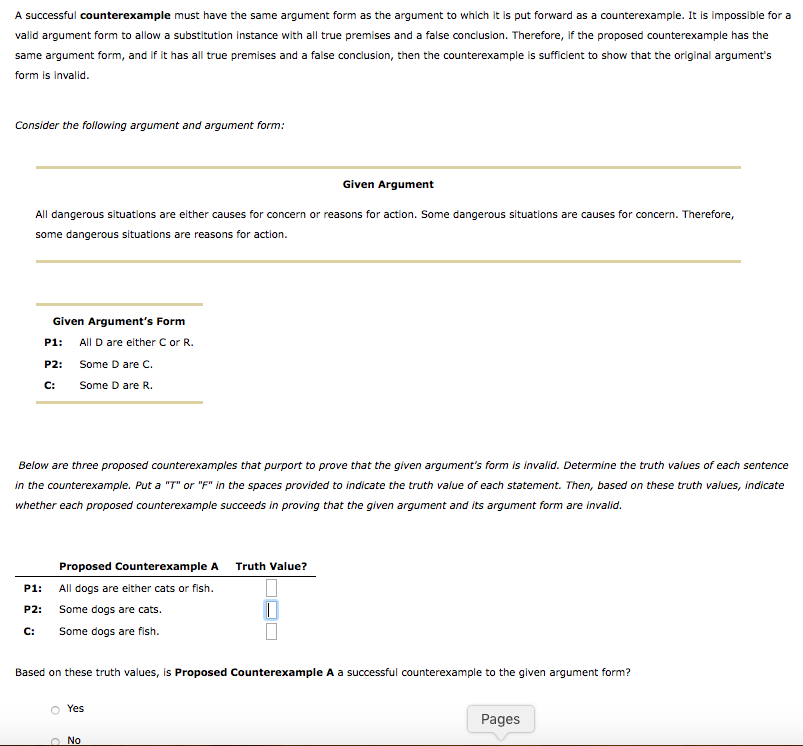 |  |  |
 | ||
「If p then q q therefore p is an example of what kind of common argument」の画像ギャラリー、詳細は各画像をクリックしてください。
 | 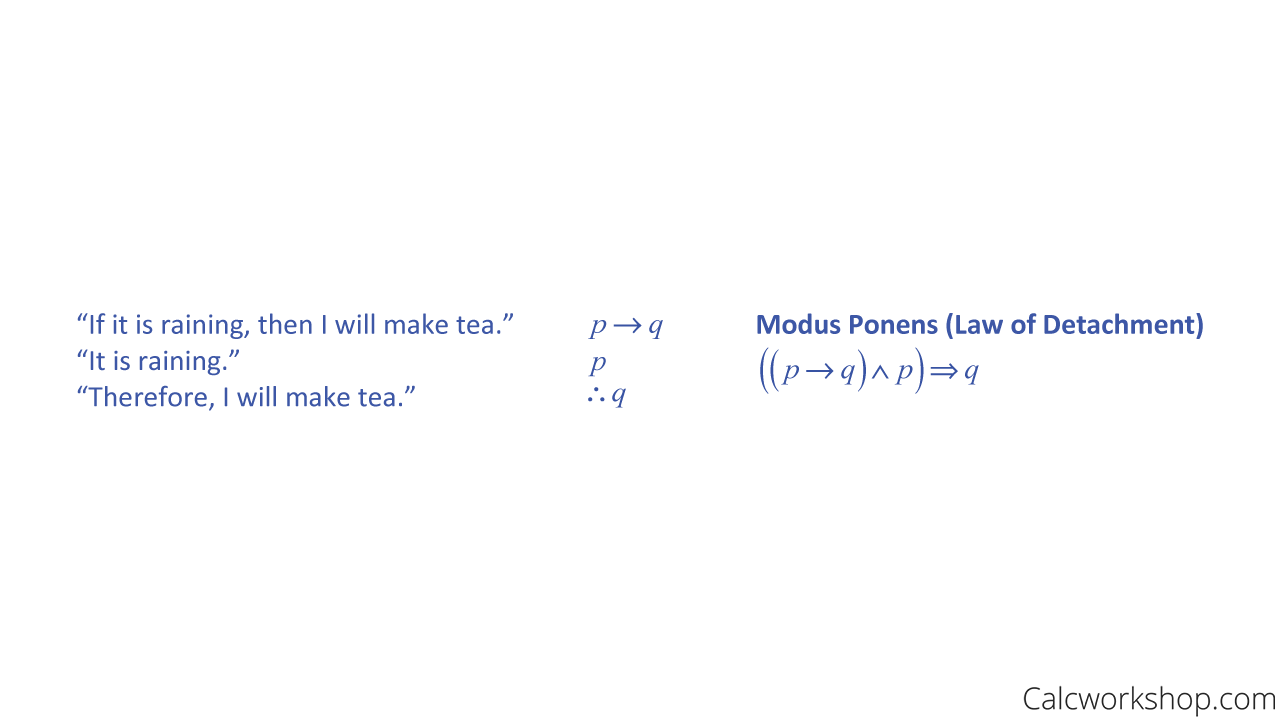 | |
 | ||
 | ||
 | 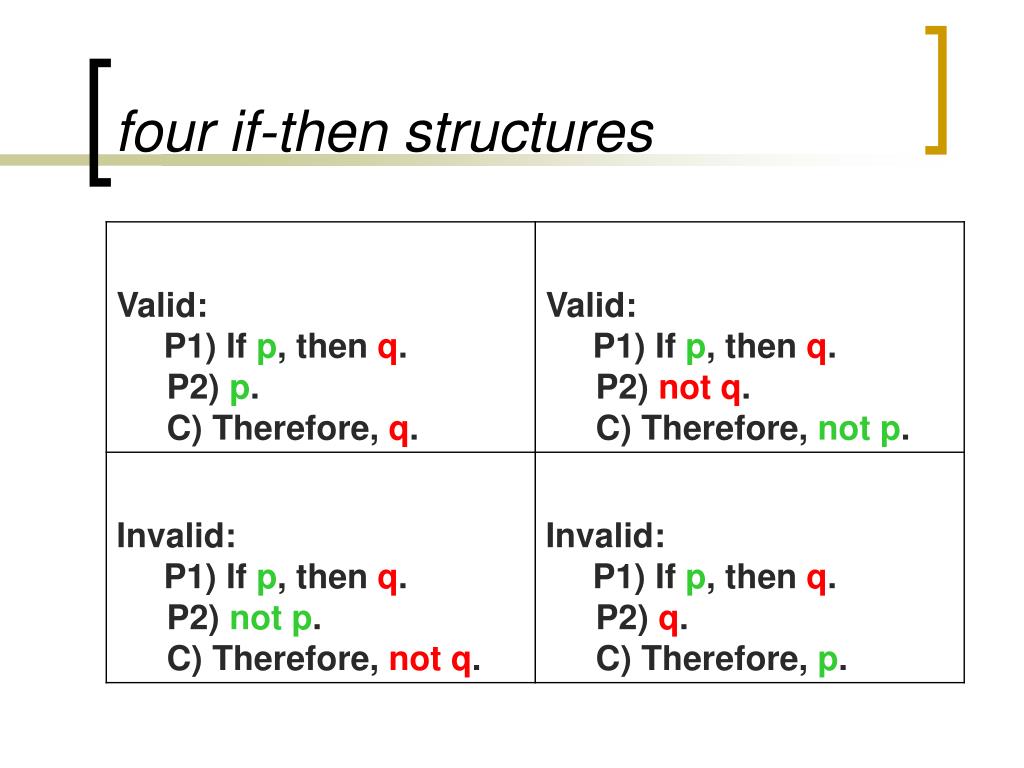 | |
「If p then q q therefore p is an example of what kind of common argument」の画像ギャラリー、詳細は各画像をクリックしてください。
 |  |  |
 |  | 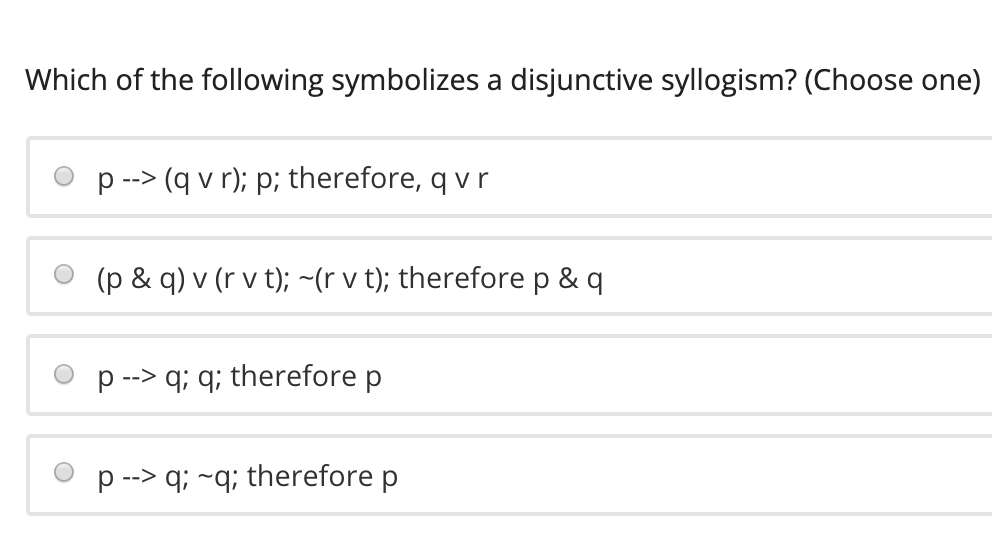 |
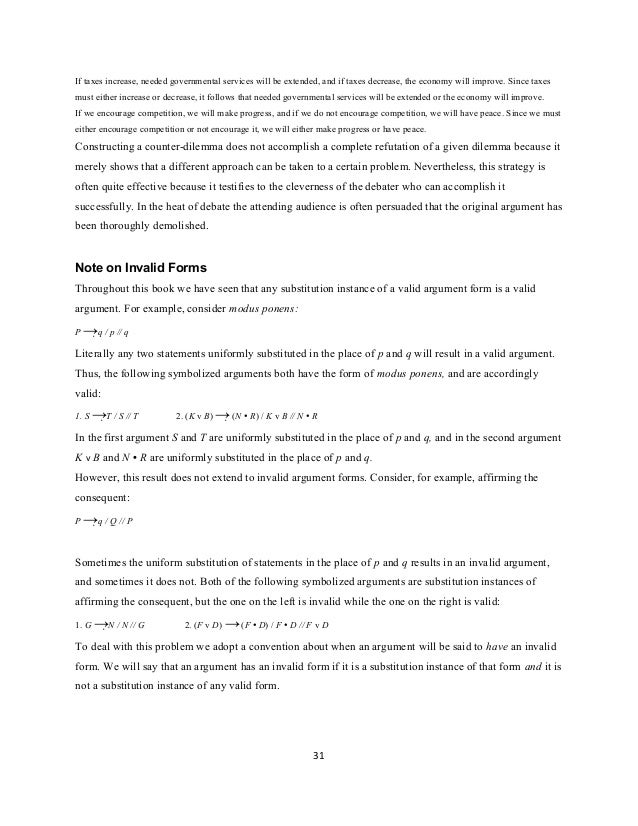 | 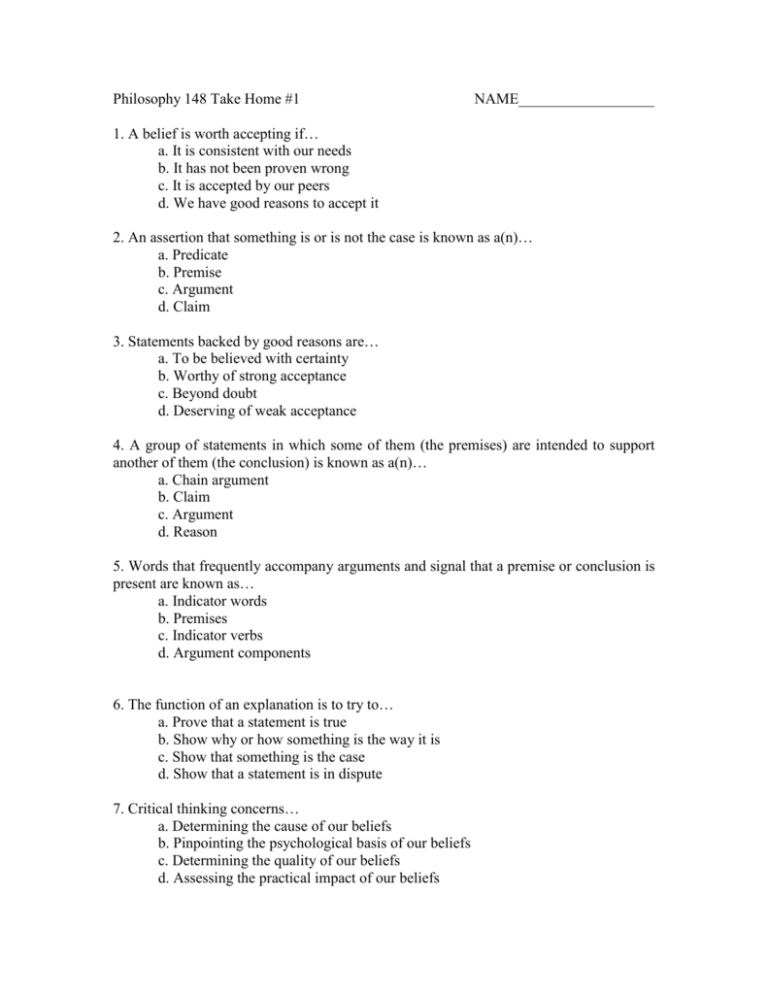 |  |
「If p then q q therefore p is an example of what kind of common argument」の画像ギャラリー、詳細は各画像をクリックしてください。
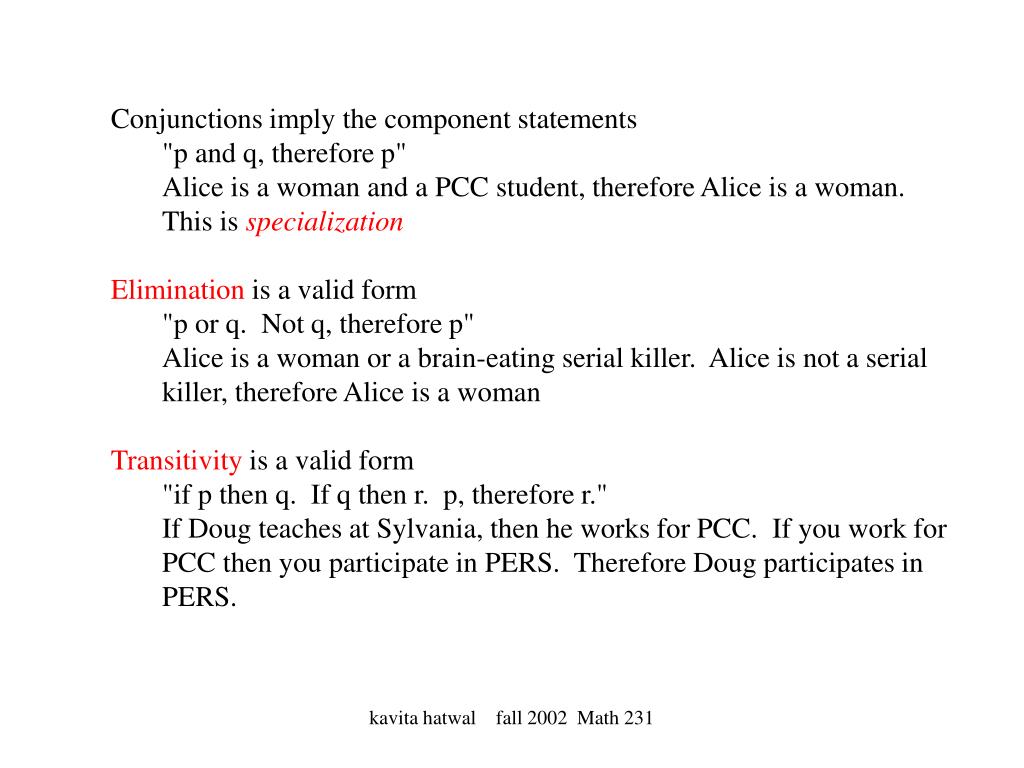 |  | |
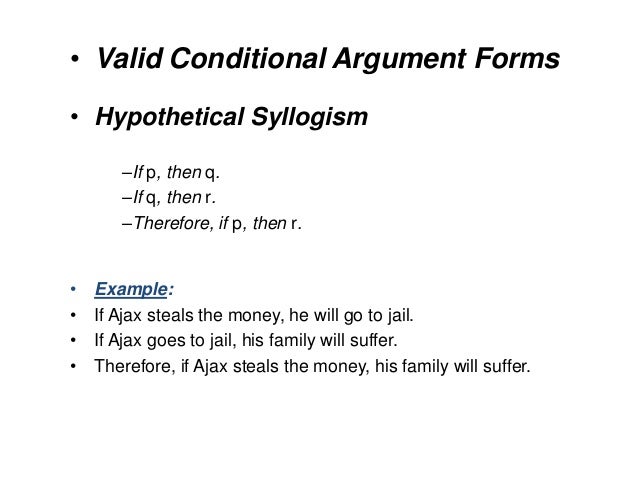 |  | |
 |
A statement is true when the world is the way the statement says the world is An argument is a sequence of statements, the last of which (the conclusion) is supposed to follow from the others (the premises) A valid argument is one with the following property IF all of its premises are true, then its conclusion must also be true (said another way an argument is valid when it is1 If P then Q 2 P 3 Therefore, Q Valid (Modus Ponens) Notice that this argument is still valid even though (as far as we know) all the premises (and the conclusion) are, in fact, false F 1 If P then Q 2 Q 3 Therefore, P Invalid This is the same invalid form as argument B Notice that all the premises and the conclusion are in fact true





コメント
コメントを投稿